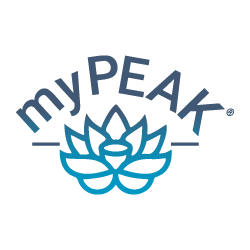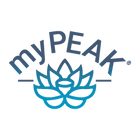Science-based Biohacks for Optimizing Your Sleep, Part 1

What is biohacking? Biohacking is a revolutionary and growing trend in health that can have transformative impacts on your health. Biohacking is also known as citizen or do-it yourself-biology. It began as a biotechnological movement interested in experimenting into “hacking” your biology by using small tricks and incremental changes in lifestyle, diet, and habits. While it began with a tech hacker ethos with a scattered group of tech theorists applying the hacking mindset to biology and with personal experimentation, it has become a full-blown movement in pop culture.
It has grown increasingly over the years to include leading-edge science-based interventions as science has learned more about nutrition, biochemistry, genetics, light, exercise, the brain, and more. While not every intervention that is recommended works, we will cover some of the most effective and powerful recommendations to optimize your life in the upcoming blog posts. We will begin with sleep for this upcoming blog series. First, we will cover the mechanisms of sleep and a general overview of the processes involved in sleep. In the next post, we will delve into sleep hygiene, oral hygiene, and how to optimize your sleep routine. Then we will cover the integral connection between the effects of blue light exposure and sleep. Following that, we will explore various supplements and teas that promote deep and rejuvenating sleep. Last but not least, we will cover the relationship between caffeine and sleep quality. In all, we will cover 11 crucial biohacks for optimized sleep, and subsequently greater day to day health, happiness, and performance.
Check out the youtube video version of this blog here!: https://youtu.be/Soo2UNvXA8w
Sleep is the MOST UNDERRATED but critical biohack you can find. You may think you get decent sleep but optimizing your sleep can make a WORLD of a difference in your life. Sleep is the foundation of all other good habits and the ultimate biohack for longevity, good health and thriving performance. To start, we will cover everything you need to know about sleep, how it works, and how to optimize it to live your best life. Without good sleep, your brain is running on empty. Over the last few decades, sleep research has shed incredible light on this complex and incompletely understood process. Getting proper sleep involves many more processes than sleep itself. Sleep regulates our energy levels, memory, mood, and plays important roles in preventing Alzheimer’s by helping activate your brain's glymphatic system, your brain's version of a lymphatic system. This system detoxifies the brain of waste products that form throughout the day. Poor sleep is further linked to an increased risk of many diseases both physical and psychological. This only brings further into the spotlight sleep problems in the developed world which are at an all-time high, with up to 40% of the population experiencing insomnia in a given year and over 10% chronically. It is crucially important we understand how to optimize our sleep. Sleep is regulated by two major hormones: Melatonin and Adenosine. Let’s discuss them one at a time.
Sleep Biohack 1: Optimize Melatonin production
Melatonin, which is popularly known as the sleep hormone, is released from the pineal gland in the brain, a tiny, light-sensitive, pinecone-shaped gland in the brain. Your pineal gland responds to light entering in through your eyes and regulates your circadian rhythm (or internal clock). Therefore, you can intend to wake up at a specific time and you can train your brain to do it without an alarm clock. Your pineal gland is an internal alarm clock! Regulating your circadian rhythms is crucial for your health.
How can we regulate them? By being exposed to natural sunlight in the mornings and avoiding artificial light at night. The pineal gland responds to the blue spectrum of light (which is found in the sun's rays, along with red, infrared and amber light depending on the time of day) and we have evolved to associate blue light with day since throughout history, the sun was the only natural source of blue light. When the sun would rise, our eyes would process the light and send it to the pineal gland which sent awakening signals throughout your brain. At night when the sun set, our pineal gland would begin ramping up production and release of melatonin which signaled to your brain that it was night and prepared you for sleep.
These rhythms have been deeply disturbed today with powerful blue lights in our homes and in our electronic devices (cell phones, laptops, TVs) which emit 5-10 times as much artificial blue light as the sun. When your eyes process blue light at night, they send signals to the pineal gland to suppress melatonin production because it signals daytime. This makes it difficult to fall asleep, stay asleep, and get a good quality of sleep. To optimize the benefits of melatonin, follow these tips:
✔️ Avoid blue light the last 2 hours before bed (or use blue light blocking glasses or red lights)
✔️ Turn on night shift/warm color settings on phones and laptops
✔️ Take a 0.3-0.5 mg melatonin supplement every night 30 minutes before bed (studies show physiological doses of 0.3-0.5 mg actually work better than higher doses)
Sleep Biohack 2: Optimize Adenosine Balance
Adenosine is a neurotransmitter in the brain that sends inhibitory signals, meaning it suppresses arousal and promotes sleep. Throughout the day, adenosine builds up in the brain from when you wake up till when you go to sleep at night. At night, the accumulated adenosine exerts a pressure on your brain to sleep which is what causes the feeling of sleepiness. When you sleep, the buildup of adenosine is eliminated and you wake up fresh the next morning with minimal adenosine, at least ideally. So, while melatonin tells your circadian clock it is nighttime, adenosine makes you feel sleepy and stay asleep. This is also why caffeine makes you feel alert and awake. Caffeine artificially blocks receptors for adenosine in the brain giving the illusion that you are more alert and awake. This is why it is also crucial to avoid caffeine after 2 PM since it can stay in your system for 12+ hours keeping you up at night without you even realizing it. But as you stay up late, even more adenosine builds up in the brain and when you wake up, you still feel sluggish and sleepy causing you to consume more caffeine and continuing the vicious cycle. This is also a reason to avoid naps during the day because it clears built up adenosine making it harder to sleep at night. So remember these two key points for ideal sleep:
✔️ Avoid caffeine after 2 PM
✔️ Avoid daytime naps
Sleep Biohack 3: Supercharge your glymphatic system.
While the rest of the body has a lymphatic system to remove toxins, the brain until recently was believed to be without a lymphatic drainage. This is until we discovered what we now call the glymphatic system. Every night, when you sleep, the brain undergoes a detox removing waste materials and accumulated byproducts to help it perform at its peak again the next day. But here's the caveat, this system requires a massive amount of energy and blood flow. To assist your glymphatic system in detoxing your brain and helping yourself perform at your optimal potential, follow these tips:
✔️ Eat your last meal at least 3 hours before bed (otherwise all the blood flow goes to your gut and not your brain)
✔️ Get between 6-8 hours of sleep
Stay tuned to learn tips 4-13 on optimizing your sleep on the upcoming blog posts!
Future Blog Posts:
Part 1: https://www.mypeaksupplements.com/blogs/the-mypeak-blog/science-based-biohacks-for-optimizing-your-sleep-part-1
Part 2: https://www.mypeaksupplements.com/blogs/the-mypeak-blog/science-based-biohacks-for-optimizing-your-sleep-part-2
Part 3: https://www.mypeaksupplements.com/blogs/the-mypeak-blog/science-based-biohacks-for-optimizing-your-sleep-part-3
Part 4: https://www.mypeaksupplements.com/blogs/the-mypeak-blog/science-based-biohacks-for-optimizing-your-sleep-part-4


This was an amazing post. I’ve been trying to get better sleep and it gives me a great outline of how I can start. Thank you so much.
Leave a comment